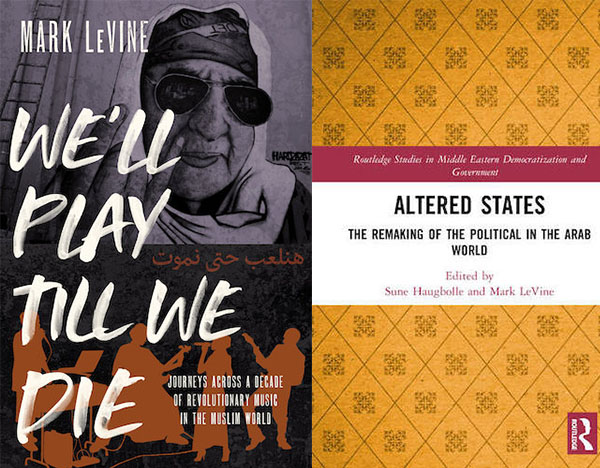Dear Students, colleagues and Friends,
We welcome you back to UCI and the Program in Global Middle East Studies for the 2023-24 academic year with pleasure and sadness in equal measure. We are excited for the continued growth and vibrancy of our campus, but we begin this year with two almost incomprehensible tragedies: the terrible earthquake that devastated the Atlas Mountain region of Morocco and parts of Marrakesh – one of the most beautiful cities in the world, which was followed only days later by one of the worst floods in modern history that has killed upwards of 10,000 people in northeastern Libya. We hope everyone will take a moment to donate whatever you can to organizations like the IFRC (Red Crescent), which is operating already in Morocco and Libya to help the Moroccan and Libyan peoples recover from these terrible tragedies.
The Moroccan earthquake is a tragic but natural disaster that anyone who's lived in California can appreciate. The massive flooding in Libya, fatally exacerbated by the failure of at least two dams, was caused by a combination of climate change-induced severe weather patterns and the utter neglect of infrastructure caused by a dozen years of civil war, which have left Libya literally in tatters. In both cases the resulting death and destruction is the product of long-term and global history of exploitation, marginalization and neglect in the context of a lack of accountable democratic governance.
UCI’s Global Middle East Studies Program has from the start sought to understand that deeply implicate relations between nature and human activity – whether governance, economic, cultural, and the combination of all three. That is what makes our program unique among Middle East studies programs, nationally and around the world, are deeply interdisciplinary and holistic approach to teaching and research.
As the war in Ukraine drags on, economies across Southwest Asia and North Africa, like their counterparts throughout the Global South, continue to suffer, a situation exacerbated by increased violence regionally and globally, and drought and other changes in our global ecology. As we move through this year we will focus on these issues in the two core courses we will be offering, in Winter and Spring 2024: GME 60b and 60C. We also look forward to working with students to develop independent research projects – whether independent studies or honors projects – where they can explore some of these issues in greater detail using original sources. to that end we are encouraging our students to take courses in a variety of disciplines in the sciences and social ecology to help give them the kinds of knowledge and skills necessary to help address the issues behind these disasters in the future. In addition to having world-leading experts in the histories and cultures of the Middle East, North Africa and the Muslim world in a global context, UCI is also home to renowned experts in flood-mapping, hydro-ecology and other scientific disciplines that are crucial for studying the region today. They are not only passing on their knowledge in our core and upper division courses, but also working to train the next generation of scholars in a way that prepares them for the myriad challenges we see before us, and which are sure to grow even more difficult in the coming years.
But even amidst all of the challenges and today suffering in the region, we should never forget that the countries we study are not reduceable to, never mind defined by, the problems and challenges they face. The regions we study remain home to many of the world's most vibrant, cutting edge and innovative and forward thinking and holistic cultural, economic and political ideas and practices, especially at the grassroots level. our students are constantly exposed to them through our courses in history, literature, film, music and other forms of cultural production, as well as historical sociological and political analysis which focus on all of the many ways that the region can serve and has served as a blueprint for collective action, whether it was from the early constitutional experiments in Tunisia or Istanbul, or the knowledge hubs today in Beirut and Baghdad.
We hope you will consider taking one of our courses and/or attending some of our events and we remain excited to meet you in the new year and discuss ways for students and colleagues alike to join our program and help shape it into the future. Are small but cutting edge program has a strong record of placing students in leading graduate programs and jobs, and we work closely with our colleagues across campus and beyond to ensure the GMES major and minor is a strong fit as a second major or minor with other thematic, disciplinary and professional programs.
Wishing you a safe, productive and fulfilling 2023-24.
On behalf of the GMES program and its affiliated faculty and staff,
Mark LeVine
Professor of History
Chair, GMES




